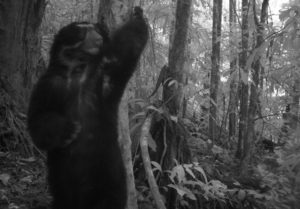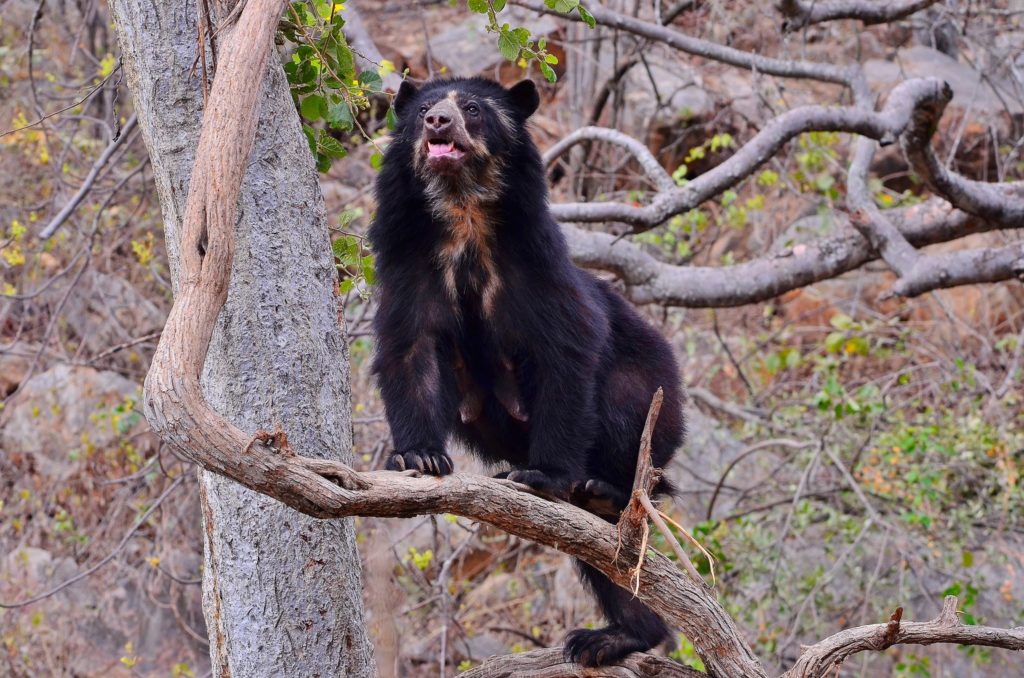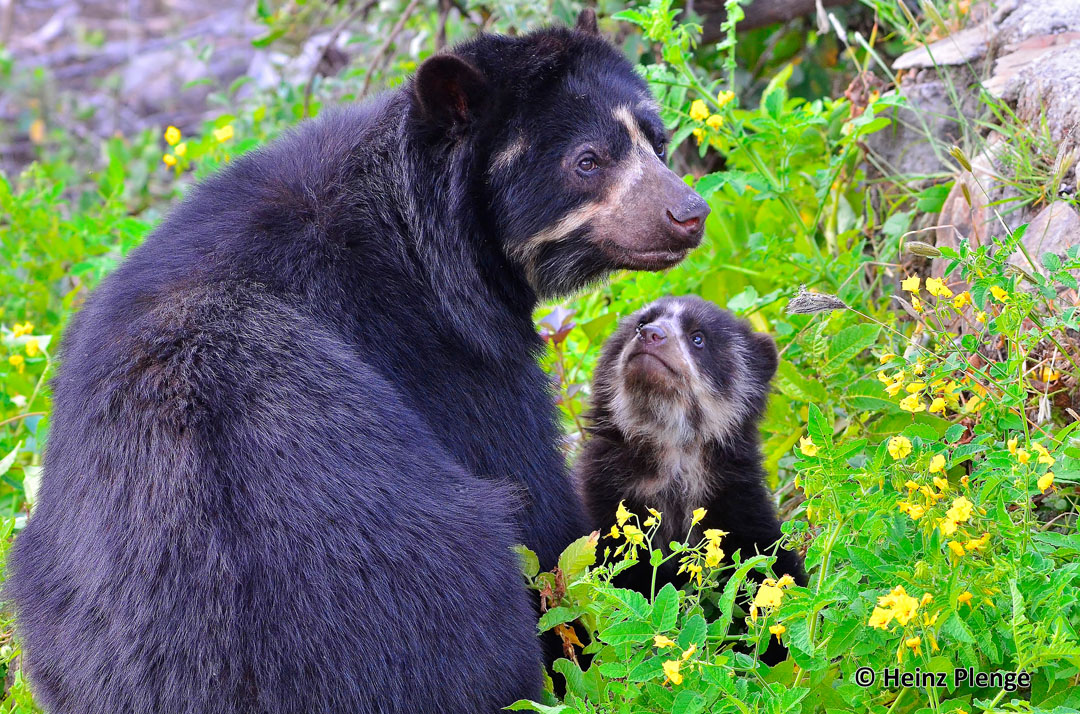Paddington 2 the movie releases into UK cinemas on Friday 10th November, and 12th January 2018 in the United States, telling the tale of the nation’s best loved bear on his second intrepid adventure. While the fictional Paddington runs around London, the real Andean ‘spectacled’ bears on which Paddington is based are now classified as a vulnerable species, living on the frontier of the Amazon.
However, fortunately the real Paddingtons also have friends in London fighting their corner. Today, Ecosphere+, the sustainable impact company working to protect the habitat of the Andean spectacled bears (and other critical eco-systems), has announced the launch of a campaign to raise awareness of this beautiful and vulnerable species and provide a solution for those who want to help.

A camera trap image of a spectacled bear rubbing its back on a tree (Heinz Plenge)
Real Paddington bears live in the Cordillera Azul National Park in deepest, darkest Peru and their main threats are destruction and fragmentation of their habitat, making it difficult for them to travel through the forests to collect food: ripe fruit, wild berries, cacti and honey.
Whilst the Cordillera Azul National Park provides a home to many endangered and vulnerable species, as well as indigenous communities, many people do not associate the spectacled bear and its habitat with their beloved Paddington. The Ecosphere+ team hope that, like them, others will be horrified to learn that the bears’ natural habitat is facing major threats from deforestation and will want to help.
Lisa Walker, CEO of Ecosphere+, commented: “The mission for E+ and its partners in the Cordillera Azul is to provide finance that can support local communities to protect the bears’ long term environment by making trees more valuable alive than felled. Supporting the forest not only protects the bears and other vulnerable species, but also provides a powerful natural ally in the fight against climate change with trees absorbing carbon dioxide and reducing carbon emissions left in the atmosphere, as well as providing vital eco-system services that are often under-valued in the economy.
The Cordillera Azul project will alone deliver more CO2 savings than the nationally determined contribution (NDC) for a country the size of Finland. By supporting the project, individuals and businesses can protect the habitat for the bears at the same time as easing climate stress – a win:win.”
This week Lisa attends the UN Climate Change Conference in Bonn to draw attention to the importance of the Cordillera Azul national park and the work Ecosphere+ is doing to protect this and other critical ecosystems around the world.

An image taken of the Spectacled bear climbing a tree, most likely foraging for food (Heinz Plenge).
To find out more information about the Cordillera Azul project and how to get involved in protecting the habitat of the Andean spectacled bear please visit https://standfortrees.org/en/protect-a-forest/cordillera-azul-national-park – follow @ecosphereplus on twitter; @ecosphere.plus on facebook and @ecosphere.plus on Instagram.
About Ecosphere+
Ecosphere+ is a positive impact company, tackling climate stress and promoting sustainable economic development. Our portfolio of projects protects forests and natural ecosystems around the world, which in turn absorb carbon and reduce the levels of emissions in the atmosphere, providing a way to help reduce climate change whilst delivering many additional economic, environmental and social benefits.
Through purchasing carbon credits, companies and individuals can rebalance their carbon footprint and help achieve deforestation-free supply chains, whilst also investing in a market forecast to triple in value by 2030.[1]
Ecosphere+ can help companies interested in how they can build natural climate solutions into their climate strategy or even integrate positive impacts into the products they sell. Contact Ecosphere+ on info@ecosphere.plus or ecosphere.plus for more information.
[1] The World Bank estimates the carbon credit market in 2030 will be worth $185 billion (from less than $50 billion today)
